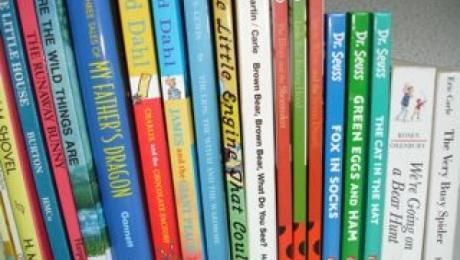Make a Living and Enjoy What You Do as a Children’s Book Author
Children’s literature is not a poorer form of fiction. Writing for children connects authors to the most enthusiastic readers and impacts their lives. A 20-year study has revealed that books at home increase the potential level of education of children later in life. If you are considering writing for children, you will be rewarded by your choice.
Children Read More Books
As revealed at the Nielsen Summit in 2015, 11 of the 20 top-selling books in the country between January 2014 and September 2015 were children’s books. Children’s literature is booming internationally as well. Kids are voracious readers. They read more books than adults. The publishing industry’s dominant growth sector in 2014 was the children and young adult category, according to the Association of American Publishers.
Reading Improves Children’s Brains
It is rewarding to know that your work has a positive effect on your readers. A study of 17,000 people in England, Scotland, and Wales revealed that reading for pleasure boosts intellectual progress. Those who read books frequently at age 10 and more than once a week by age 16 earned better test results. The impact of reading was found to be almost four times greater than having a parent with a post-secondary education.
Moving Fan Mail
Young fans’ sincerity and their sharing of how meaningful books have been for them makes this genre a special one for writers of children’s literature. Children’s book authors love and treasure their fan mail! To give you an idea, the chroniclebooks.com blog on February 18, 2015 presented a sweet collection of fan letters received by authors for Letter Writing Month.
Making a Living from Children’s Books
Advances vary for children’s book writers. According to the Society of Children’s Book Writers & Illustrators, the advance for a standard project ranges between $8,000 and $12,000. However, as this amount is shared with the illustrator, the writer may end up receiving between $4,000 and $6,000.
Royalties are paid after the book sales earn back the advance amount. Royalties vary but typically range between three and a half and six percent for a picture book, and otherwise between seven and 10 percent.
The payment rates are different if a writer is employed to write a book. In this case, payment is made either per word or per hour. Per-word rates range between $1 and $5, with $3 per word being the average, according to Writer’s Market. Hourly rates range between $50 and $70 per hour, with the average around $63 per hour. In addition to writing, speaking fees for children’s book writers range between $1,000 and $2,500 per day.
Books that sell well also sell in bulk because schools and libraries are ready customers. It is hard work to write something that engages children and holds their attention, but the hard work of writing pays dividends.
- Published in Writing & Editing Resources
Well Known Writers’ Quirky Habits to Boost the Creative Process
Some writers need a certain condition to boost their creative process. Many well known writers have found idiosyncratic ways to get their creative juices flowing. These literary icons have found a variety of ways to motivate themselves—from drinking copious amounts of coffee to writing in the buff—to encourage the writing genie to loosen the creative impulse.
Writing is a personal experience, and the condition that promotes the creative process is personal as well. Perhaps one of the methods described below will motivate you to establish some concentrated time working on your craft.
Getting Horizontal or Vertical
Instead of using a chair, some writers preferred standing up or lying down to write. Woody Allen, Truman Capote, George Orwell, Marcel Proust, Mark Twain, and Edith Wharton preferred to recline, while Lewis Carroll, Charles Dickens, Ernest Hemingway, Philip Roth, and Virginia Woolf preferred to stand.
Using Index Cards to Organize Scenes and Jot Down Ideas
Vladimir Nabokov used index cards, which allowed to him to reorder scenes, write on the go, or write while in bed. Today, digital tools can be used for note taking.
Select a Quota of Words
Anthony Trollope wrote 250 words every 15 minutes. Ernest Hemingway wrote at least 500 words a day. Jack London wrote 1,000 words, Thomas Wolfe wrote at least 1,800, and prolific author Stephen King has a quota of at least 2,000 adverb-less words. Norman Mailer, William Golding, and Arthur Conan Doyle each wrote 3,000 words daily.
Acting out Character Dialogues
Aaron Sorkin prefers to act out his character’s dialogues. For scriptwriters and novelists, this method might be a useful way to test the dialogue.
Writing in Your Underwear or in the Buff
John Cheever and Victor Hugo discarded their clothes. John Cheever wrote in his underwear, while Victor Hugo wrote without his clothes to discourage himself from going anywhere when a deadline was approaching.
Relying on Caffeine
Honoré de Balzac drank 50 cups of coffee a day. Voltaire was another coffee addict who drank 40 cups daily. Proust and other writers did not drink as much coffee, but many writers find coffee helps them to write.
Making Time for Exercise
Dan Brown likes to hang upside down and take exercise breaks between writing. He is not the only writer who likes to exercise before and between writing episodes.
Writing on the Go
Wallace Steven wrote while walking, Gertrude Stein and Eudora Welty wrote in the car, while Sir Walter Scott composed while on horseback. Joseph Heller and Woody Allen wrote while taking public transit.
If any of these routines are too wild for you, find your own way to create a comfortable environment that encourages your creativity. Or, maybe you have already found a personalized, quirky method that helps you work productively each day. If so, just know that you are in good company.
- Published in Writing & Editing Resources
Polishing the First Draft of a Novel before Submission
Inexperienced novelists are often confused about the steps that follow after the first draft is finished. Novelists who plan to go the traditional publishing route need to revise and re-edit their work before finding an agent. In this process the output should also be free of the common mistakes made by first-time novelists. Otherwise the novel will not be selected by a discerning agent. If the self-publishing route is chosen, then review and revision is still necessary, and finding an editor to review the work is recommended.
Getting to the First Draft
Often the first draft is in a clearly unfinished state that was intended to be revised afterwards. This is because writing is a hard task, and the writer needs to write something before improving it. However, some writers do not realize the first draft is the start of a new stage in the writing process. If you are at this stage then this discussion is for you.
Become an Objective Reviewer by Taking a Time-Out
Create some space and separation from your output, so you can look at your draft objectively. Let some time pass. Ways to create some space include printing a hard copy of the novel and reading it through an e-reader after converting it to an .epub or .mobi file. The draft can also be listened to by reading it aloud or having someone else read it aloud and recording it.
Editing and Rewriting the First Draft
Consider the novel as a whole, and ask yourself whether the themes and sub-themes work. Is the novel economically written, or does the content need pruning? Keep in mind that beautiful or flowery prose can overwhelm the content.
Are the characters relatable or plausible? Is the plot riddled with holes or missing some vital parts? Did you forget to tie up loose ends? Are the descriptions just right or excessive? Is the pacing right? Consider such thematic issues.
Then review the technicalities of the writing. How are the grammar, spelling, and punctuation? Do sentences flow well? Do the paragraphs support the narrative flow? If you are unsure about the technicalities then you should read a book about the technical aspects of writing, take a writing course online or at a college, or join a writers group or workshop.
Get Some Feedback
Get feedback after reviewing and self-editing the work repeatedly until it seems complete. The process of immersion eventually obstructs objectivity. Make time for this stage. It can lead to more revisions.
The writing, review, and revision process is a learning curve. Your novel should be ready for submission after this stage is completed to your best ability.
- Published in Writing & Editing Resources
Writing an Engaging Book for Children
According to a Pew Internet survey of teachers, a majority thinks students are distracted easily and have shorter attention spans. However, a good children’s book will still capture their attention, even though children’s exposure to technology is a distracting factor. Kids still love to immerse themselves in stories and transport themselves in them as witnesses or protagonists. Reading takes them on adventures to captivating places in their imaginations.
As you think about your story, here are some things to keep in mind:
The Conundrum of the Target Audience
If you are considering writing for children, do not approach your work with cold calculation and write for a particular market. You need to be authentic and have a connection to your work.
However, knowing which age group you want to write for will influence how you tell your story and the words you use. Is your target audience preschoolers, kindergarteners, or elementary school students?
Is There Deeper Meaning in Your Book?
Do you want to teach a life lesson, show your readers how to do something, or are you simply a storyteller? For life lessons, you can write what you think is worth knowing about, or research topics that would be useful for your intended audience. No matter what you write about, your originality should standout. Writing what you would have loved to read as a child is one way to be an authentic children’s book author.
Capturing the Attention of Young Readers
Just because you are writing for children does not mean the quality should suffer. Nevertheless, avoiding long sentences, longwinded narrative descriptions, and sophisticated words will improve the readability of the content.
Begin with an exciting and engrossing narrative to capture interest. Engage readers with an interesting plot developed through the dialogue of realistic and relatable characters. Add humor, if it fits.
Avoid Patronizing Your Readers
An entertaining story can still challenge readers and their intellect. A story that is too simple or complex to follow will lose readers; but you can still write a creative story on subject matter your readers would not have imagined.
Get Input from Others
If you have children, nephews, or nieces, or know children in the age group you are writing for, have them read your work. Their input may be constructive and help you to improve your work.
Writing a children’s book is a rewarding experience when the work is appreciated. If your book remains a fond memory for years to come, then you have earned it by valuing your readers and working hard to earn their appreciation.
- Published in Writing & Editing Resources
Follow Submission Guidelines to Avoid Burial in the Slush Pile
Writers need to pay attention and show respect by following submission guidelines. The best way to avoid being discarded in the slush pile is to follow the submission guidelines. The slush pile is the publishing industry term for unsolicited manuscripts or query letters sent by authors, or unfamiliar agents, to the publisher.
Submission Guidelines Vary
While submission guidelines vary, most guidelines are available on the websites of the publications. However, one standard requirement is the formatting of the submitted work. Going through the pile is an arduous task, so reviewers are not in a generous mood when they encounter obviously unacceptable work.
Some publications allow works to be resubmitted; but others reject erroneous submissions without redemption. Improperly submitted work wastes your time and theirs. If you follow submission guidelines, your unsolicited work still needs to go through the slush pile.
Do Other Submissions have an Advantage?
Solicited work is usually accepted. Submissions sent by writers, or agents, with some connection to the publication bypass the pre-editor review round, known as the “reader round” in the publishing industry. If another publication has published you, or your submission was rejected but your style was appreciated, your next submission may bypass the slush pile. But, that is not an assurance of success, as most of the non-slush pile submissions are not published.
Do Submissions in the Slush Pile get Published?
The published amount of slush pile submissions varies. Do not assume you have no chance of acceptance, if you have carefully crafted your work, and selected the publication with care.
Select the Publications Carefully
Research to find out what kind of material the publications like to publish. Good writing that is a bad fit is generally not accepted. The slush pile has too many examples of submissions that do not meet the publications’ criteria.
Since there are less readers/ reviewers than the amount of submissions, they have little time to read the material. Your work will not make its way to an editor, if it fails to grab the attention of the slush pile reader in the beginning.
Be aware that going though the slush pile is a preliminary step in the writing career of most magazine/journal writers. Do not get disheartened if you experience a rejection after your submit a story, essay, or poem you to a literary publication. In the era of online submissions, literary publications just do not have the space to publish most of what they receive. If you are confident in your work, go ahead and submit your writing to another compatible journal, after making sure you follow its guidelines.
- Published in Writing & Editing Resources
Do You Know the Category of Your Fiction Novel?
Are you writing a literary, mainstream/general fiction, or genre novel? Did you think about genres when you started writing your novel, or afterwards? Some authors easily identify the category of their work. However, others find it more difficult.
Categorizing the fiction type is important for agents and publishers. It helps to position the marketing of the product and identify its target audience. If your novel does not fit a genre classification, it might be a mainstream novel.
Differences between Mainstream and Literary Works
Is your book literary fiction? The beauty of the writing style and the themes are more important in literary fiction. Harper Lee’s To Kill a Mockingbird is literary fiction. You may think literary works are highbrow; but Harper Lee’s masterpiece is engaging because it is not highbrow. It presents complex issues in a narrative style that engages readers with deceptive simplicity. Crime and Punishment by Fyodor Dostoevsky is also a work of literary fiction. It is much more than a crime novel.
Mainstream fiction focuses more on action, although it may have elements of a literary novel. The storyline hooks the reader, while the characters and plot fuel the momentum. This characteristic makes novels in this category marketable to a larger target audience. Mainstream fiction readers like to follow an exciting plot.
Literary fiction is considered a limited niche market today because fewer people spend their time reading complex, and sophisticated fiction. Readers of literary fiction like to linger over their reading material.
Identifying Genre Fiction
Genre novels have a built-in target audience that looks for books in a particular category. These novels focus on the story. Character development takes a back seat to the main plot built around the genre’s primary focus. This means in mysteries the main character’s activities are focused on solving the mystery; and in a romance, the focus is on the relationship between the two main characters.
Entertaining the reader is the main purpose of genre fiction. The linear storyline culminates with a clear resolution and satisfies the reader’s expectation. Hence, a happy ending is the culmination of the narrative arc of a romance novel’s storyline.
Mainstream fiction does not fit into a defined genre category. It is harder to market, because there is no target audience. However, it has the potential of appealing to a broader audience. The word-count requirements and style guidelines are stricter for genre novels, than they are for mainstream or literary fiction. So, it is also important to know how to classify your novel for this reason as well.
- Published in Writing & Editing Resources
Getting Your Creative Juices Flowing as A Writer
If you are an avid fiction writer, then you have probably run into the problem of writer’s block once or twice. Lack of inspiration is the most potent enemy to a writer of any kind, but especially to one who relies on original tales and stories of fiction. Still, there are a number of ways you can get your creative juices flowing again, no matter how tapped out you feel.
Writers have a tendency to become stagnant in their work. They feel that the assignment at hand must be done as soon as possible, as many face impending deadlines for their work, but the fact remains that sitting behind your desk in your office is actually counter-productive to the creative process. To get the creative juices flowing, it is always a good place to start to get your actual, physical juices flowing: your blood. Try taking a short brake and going for a half an hour walk. We do some of our best thinking when we are walking, because we are getting more oxygen to our brains than by sitting behind a desk writing or typing.
Keep in mind that being sedentary is the enemy of creativity. Another thing you could do to combat mental and physical lethargy is to change your setting. Your desk and office may be the most congenial place for you to write logistically, but it may be stifling your imagination and creative capacities. If at all possible, set up shop in your backyard, on your deck, or at a nearby park. Try writing outdoors or simply change your work scenery to gain a different perspective.
This next pointer may be the most powerful yet: tap into your dreams. Even if, in your waking life, you are finding it hard to think creatively or come up with something new, chances are your subconscious mind is not having the same problem. It can be difficult, with your schedule, to record your dreams when you wake up in the morning, but give it a try. You can start by keeping a small notebook and a pen near your bed, perhaps on your nightstand every night. Wake up 15 minutes early every morning to give yourself time to simply lie in bed and think about your dreams. Close your eyes and try to recall every detail as best you can, no matter how seemingly inconsequential. Write everything down in the notebook—everything! This is the time where you should be a free-form recounting your dreams, and you can sift through the details and what is incomprehensible later.
You may get an idea for a new story form your dreams or maybe some valuable insight into a story you are already writing, as our dreams are often cryptic messages to us about things that are going on in our waking lives.
- Published in Writing & Editing Resources
Using Figurative Language in Writing
Figurative language is any literary device used by a writer to communicate something beyond the literal meaning of the words being used. That might sound complicated, but it just means that a writer can use words to paint a word picture to help their readers more accurately visualize what they are reading, or imagine the emotions and the feelings of the characters. You may find the following literary devices helpful to make your own writing more interesting and meaningful, both for your readers and for yourself.
Simile
A simile is comparing two very different things, using the words “like” or “as.” In order to be a simile, one of those two words must be used.
An example of a simile is the sentence, “He is as sweet as pie.” A person is not really like a pie, but the idea conveys to a reader that the boy in question has a sweet nature and is very amenable.
Metaphor
A metaphor is very similar to a simile in many ways. However, a metaphor compares two very different things without using the words “like” or as.”
An example of a metaphor would be the sentence, “He’s a real tiger in the courtroom.” A comparison is made between a person and a tiger; however, because the words “like” or “as” are never used, it is a metaphor rather than a simile.
Hyperbole
Hyperbole is intentional exaggeration that is made for a specific effect. For example, if a mother tells her children that she has “told them a thousand times not to climb on the curtain,” the reader understands this is not to be taken literally. Rather, the mother simply means she has told her children repeatedly. The exaggeration is clear, and its intended effect of illustrating the parent’s frustration is accomplished.
Onomatopoeia
While difficult to spell and fun to pronounce, the concept is quite simple. Onomatopoeia refers to words that make the sound they are emulating. In other words, they sound like what you are saying. An example of this is the word “creak.” As you say it, you can hear the creaking of a door or rusty hinge.
Alliteration
Alliteration repeats the initial sound in a group of words and is usually used in poetry or in prose with a specific rhythm. The effect emphasizes the sound through the repetition. An example would be, “Sally saw Simon selling seashells.”
Personification
Personification is attributing human characteristics, thoughts, and feelings to objects and animals that are not human. In some cases, they may not even be living. An example would be talking animals in stories, such as the popular Aesop Fables.
All of these types of figurative language add color and personality to your writing. The next time you read a book, take the time to notice how the author uses these techniques to draw you into the story.
- Published in Writing & Editing Resources
5 Steps to Satisfied Freelancing Clients
Being a freelance writer comes with it a set of perks. You can work from home, meaning you don’t have to spend any money on gas. You can work in your pajamas, so you don’t have to get dressed up in uncomfortable clothes. There are all sorts of benefits to working for yourself.
But what about the drawbacks? The stress of keeping a client and, in turn, bread on the table? If you work it right, you can keep clients coming back for as long as they have the budget to do so. The key is to run your freelance business like exactly what it is: a company. Here are five tips for keeping your business, and head, above water.
- Turn Down What You Cannot Take On
Never take more work than you can handle, no matter how tempting it may be. Yes, you may need to make an extra $50 to pay the electric bill this month. Perhaps a new client is offering you double what an old, stead client is. None of that matters if you can’t deliver what you promise. Be a write your clients can rely on. If you cannot accept more work, be honest with your requestor and tell them when you can get to work for them.
- Always Meet Deadlines
Emergencies happen and are understandable. However, consistently turning in work late is no different than punching a time clock five minutes past the start of your shift every day. Never fail to meet your deadlines. If an emergency does occur, be honest with your client. Most people are understanding once. Some are even understanding twice. You will rarely find someone who is willing to accept your excuses a third time.
- Charge What You Are Worth
There are people out there who pay poorly for freelance work. There are others who pay fantastically. Do a bit of research and charge your customers accordingly. You should always charge what you are worth. Never try to gouge your clients for money simply because you believe you can. If you decide you are going to charge 10 cents per word, you better be able to explain why.
- Be Consistent
Ask any freelance writer and they will tell you that they have had a day when the words didn’t flow. They made typo after type and constructed entire articles out of run-on sentences. If you find this happening to you, walk away, take a break, and return to your writing later. Your clients deserve your commitment to consistently accurate writing. If you want to experiment with your writing style or voice, discuss it with your client. Not all are open to having fun or witty articles on their site.
- Communicate
Stay in communication with your clients. If you fall ill, you are cutting back on your output, or even if you are thinking of taking a vacation, alert your clients. Advanced warning will give your clients time to find another writer. If you really want to impress them, suggest a writer that you know so they don’t have to spend time and energy hunting one down.
Do not rest on your laurels once you have found and began to write for clients. Clients who enjoy working with you will stick around. Clients who stick around put money in your pocket. It only makes sense that you would want to keep your customers coming back for more.
- Published in Writing & Editing Resources
How to Edit Your Own Work
Writers might love writing, but editing is another story. Good editing can elevate a piece of writing from acceptable to outstanding. However, many writers cannot necessarily afford to pay a qualified editor and resort to self-editing instead. Follow these four tips for more effectively editing your own writing to transform it from mediocre to exceptional.
Set Your Writing Down
Give yourself some time away from your finished piece before attempting to edit. Tucking away your newly completed short story, blog post, or other work for a few days allows you to return to the piece with fresh eyes. You will then be more likely to notice mistakes or areas for improvement after taking some time off versus trying to edit immediately after you’ve finished writing.
Avoid Editing While Writing
Writers can get hung up on a word, sentence, or even paragraph at times. Rather than constantly stopping to change words and rewrite sentences in the middle of a piece you are working on, try to keep moving forward. Save the editing for the end. Editing tends to be more effective when there is a complete draft to work from.
Change the Format
Reading a finished piece of work in a different format than it was written in can make it easier to identify errors. For instance, a work that was typed in a Word document can be converted to PDF format for editing. Reading the piece as a PDF document gives it a different look. The new format can be enough to help you spot problems that might be overlooked if trying to self-edit from the original file the work was created in.
Read Backwards
An almost guaranteed method for seeing your finished work from a fresh perspective is to read it backwards. Start at the end of your piece and read to the beginning. Reading anything backwards is certainly challenging. If you can make it work, though, you will likely catch spelling errors, typos, and other mishaps that can be easily missed when reading through something you are overly familiar with.
The works of even the most accomplished writers can always benefit from a bit of editing. Such writers tend to have access to skilled editors who assist them in putting the finishing touches on their writing. Not everyone can afford the cost of a professional editor. For all the other writers in the world, the self-editing tips above can be an effective (and free!) method for polishing and perfecting one’s own writing.
- Published in Writing & Editing Resources









